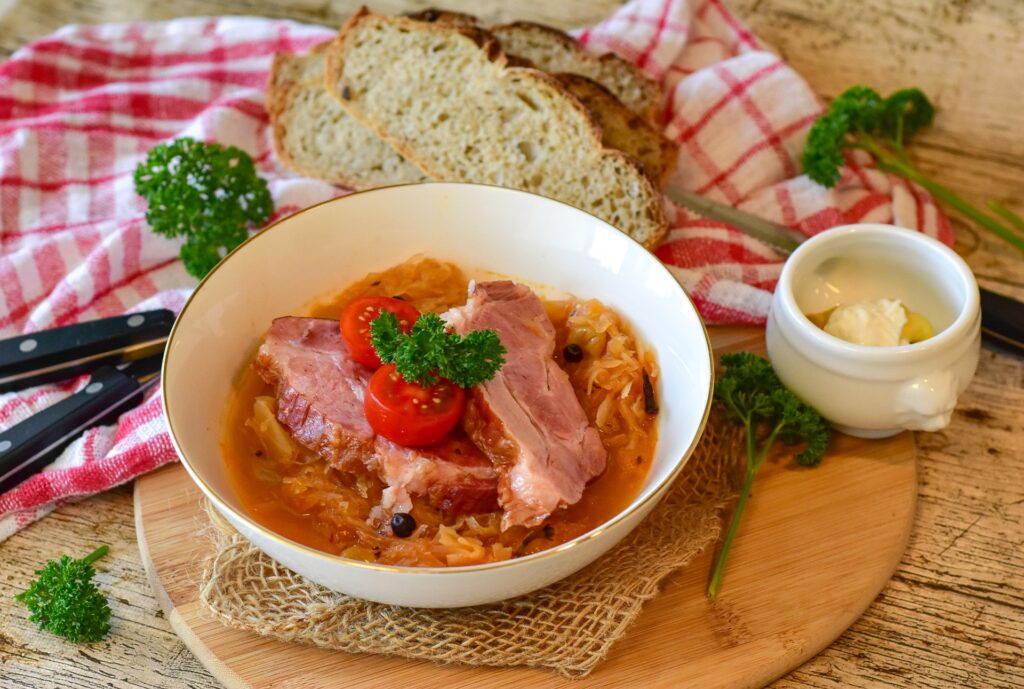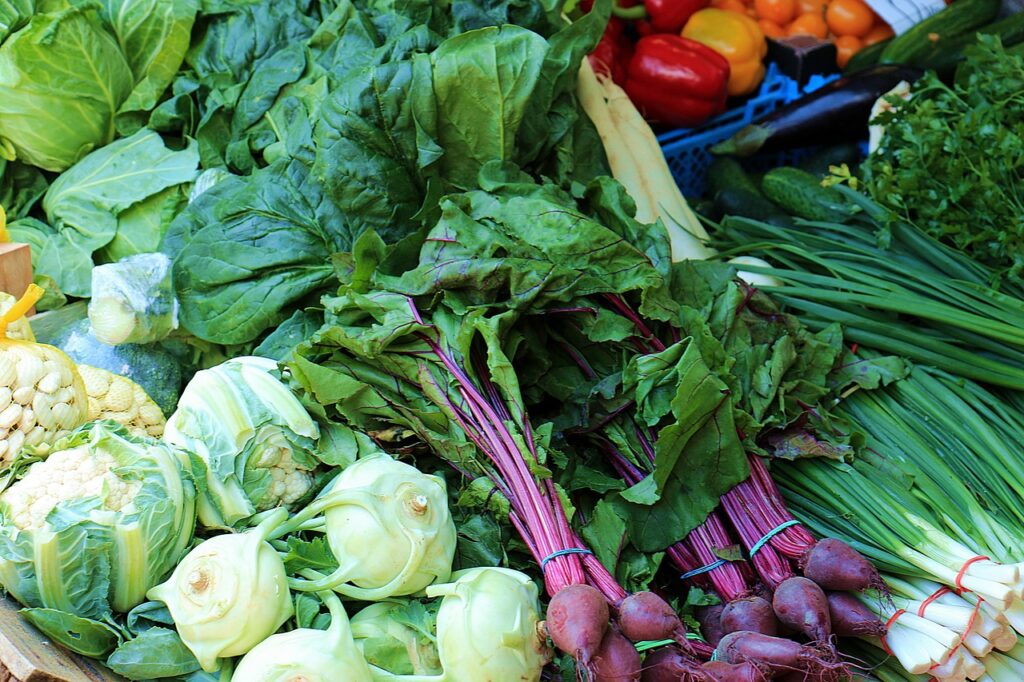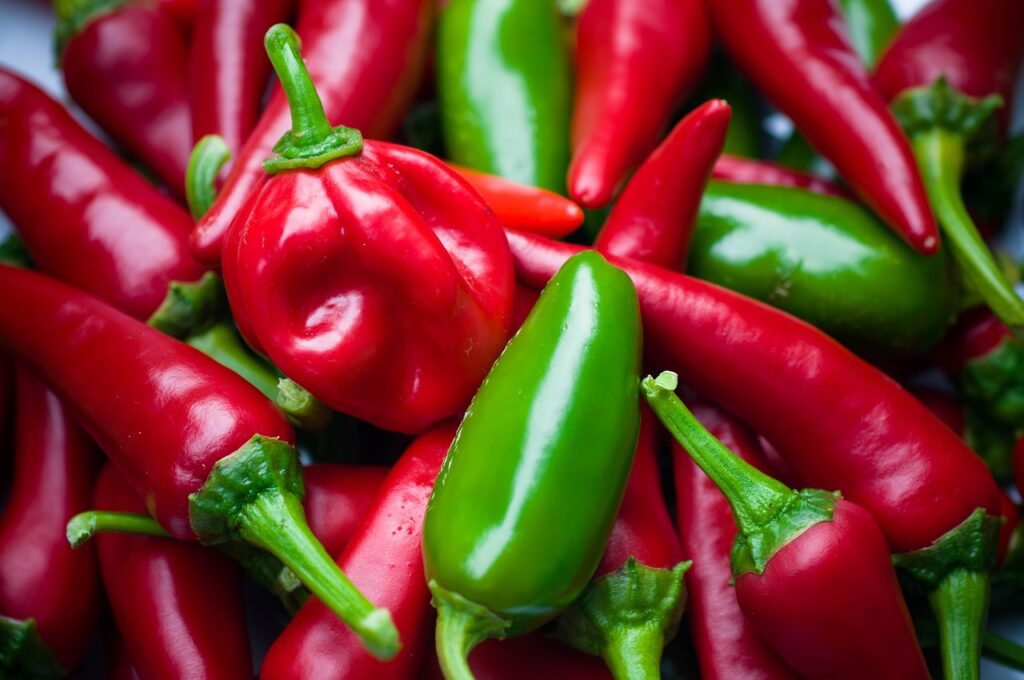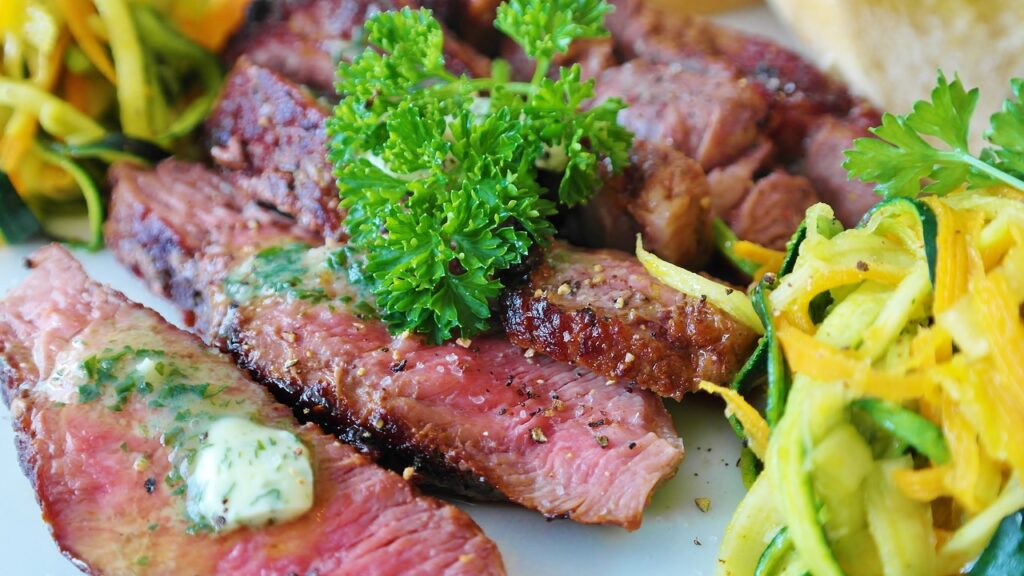
Table of Contents
Overview
Stomach ulcers, medically known as gastric ulcers, are painful sores that develop in the lining of your stomach. They are primarily caused by a bacterial infection from Helicobacter pylori (H. pylori) or by the prolonged use of nonsteroidal anti-inflammatory drugs (NSAIDs), such as ibuprofen and aspirin. While medications can help manage ulcers, diet plays a significant role in soothing symptoms and promoting healing.
In this blog post, we will explore the best foods to incorporate into your diet if you have a stomach ulcer, as well as the worst foods to avoid. By understanding how certain foods affect your digestive system, you can make better choices that promote healing and improve your overall well-being.
What Are Stomach Ulcers?
Stomach ulcers occur when the protective lining of the stomach is damaged by stomach acid, creating open sores. These sores can cause symptoms such as:
- Burning or gnawing stomach pain
- Bloating and belching
- Nausea or vomiting
- Loss of appetite
- Weight loss
In severe cases, ulcers can lead to internal bleeding or perforation of the stomach lining. While they can be treated with antibiotics (for bacterial infections) and acid-reducing medications, diet also plays an important role in managing the symptoms and preventing further irritation
Related : what to eat (or not) when your stomach hurts
Best Foods for Stomach Ulcers
Incorporating the right foods into your diet can help protect the stomach lining, reduce acid production, and promote healing. Here are the top foods that benefit those suffering from stomach ulcers:
- High-Fiber Foods

Fiber is essential for digestive health, and high-fiber foods can help reduce stomach acid levels and protect the lining of the stomach. A fiber-rich diet may also prevent the formation of future ulcers.
- Whole grains (such as oats, barley, and brown rice), vegetables (like broccoli, carrots, and spinach), fruits (apples, pears), and legumes (beans, lentils)
Soluble fiber, in particular, forms a gel-like substance in the digestive tract, which can help soothe irritation in the stomach and prevent acid from coming into direct contact with the ulcer.
- Probiotic-Rich Foods

Probiotics are live bacteria that can improve gut health by promoting the balance of good bacteria in the digestive system. Some studies suggest that probiotics may help reduce H. pylori infections and enhance the healing process.
- Yogurt with live cultures, kefir, sauerkraut, miso, kombucha, and kimchi.
Probiotics not only help restore a healthy gut environment but also strengthen the immune system, which is crucial for fighting infections like H. pylori
Related : Best Foods for Easing Constipation
- Flavonoid-Rich Foods
Flavonoids are natural compounds found in many fruits, vegetables, and plant-based foods. Research suggests that flavonoids can inhibit the growth of H. pylori, protecting the stomach lining from damage.
- Berries (such as blueberries, strawberries), apples, onions, garlic, celery, and green tea.
These foods are rich in antioxidants, which help reduce inflammation and support overall digestive health
- Non-Acidic, Low-Fat Foods

Foods that are low in fat and acidity are less likely to irritate the stomach lining. They are easier to digest and can help reduce symptoms of discomfort.
- Lean meats (chicken, turkey), eggs, tofu, and leafy greens.
Choosing foods that are lower in fat can also prevent excessive acid production, which is important for preventing the further aggravation of ulcers.
- Honey
Related : Health Benefits of Nutmeg
Honey, especially manuka honey, is known for its antimicrobial and healing properties. It may help to kill harmful bacteria in the stomach, including H. pylori, and speed up the healing of ulcers.
- How to use: Add a spoonful of honey to warm water, tea, or eat it directly.
Honey can act as a natural soother for the stomach lining, providing relief from ulcer pain.
Worst Foods for Stomach Ulcers
Just as some foods can promote healing, others can worsen ulcer symptoms by irritating the stomach lining and increasing acid production. Here are the foods you should avoid if you have a stomach ulcer:
- Spicy Foods

Spicy foods contain compounds like capsaicin, which can irritate the stomach lining and make ulcer symptoms worse. While not all spicy foods cause ulcers, they can intensify pain and discomfort for those already suffering from the condition.
- Hot peppers (chili, jalapenos), spicy sauces, and certain seasonings.
If you love spicy foods, it’s best to cut back or avoid them entirely until your ulcer heals
- Fried and Fatty Foods
Fatty and fried foods take longer to digest, which can increase stomach acid production. These foods can slow the healing process and lead to bloating and discomfort.
- French fries, fried chicken, bacon, sausages, and high-fat desserts.
Opt for grilled, baked, or steamed foods instead to avoid overloading your digestive system with hard-to-process fats.
- Citrus Fruits and Juices
Related : Foods to Avoid if You Have High Blood Pressure
Citrus fruits are highly acidic and can irritate an ulcerated stomach lining, making symptoms like pain and heartburn worse.
- Oranges, lemons, grapefruits, and their juices.
Although citrus fruits are rich in vitamins, particularly vitamin C, they can cause discomfort when ulcers are present. Consider non-citrus fruits like apples or bananas, which are gentler on the stomach.
- Caffeinated Beverages

Caffeine stimulates stomach acid production, which can worsen ulcer symptoms and slow down healing.
- Coffee, black tea, energy drinks, and soda.
While some people tolerate small amounts of caffeine, it’s generally best to avoid it if you have ulcers. Instead, opt for herbal teas, which are soothing and caffeine-free
- Alcohol
Alcohol is a known irritant to the stomach lining, and it can worsen inflammation and delay the healing of ulcers.
- Avoid: All types of alcoholic beverages, including beer, wine, and spirits.
Excessive alcohol consumption is also a risk factor for developing ulcers in the first place, so it’s important to eliminate alcohol from your diet entirely during treatment.
- Processed Foods

Processed foods often contain preservatives, artificial ingredients, and unhealthy fats that can be hard on your stomach. These foods lack the nutrients needed for healing and can increase inflammation.
- Pre-packaged snacks, processed meats, fast food, and sugary treats.
Instead, focus on eating whole, unprocessed foods that provide essential nutrients for healing
Tips for Managing Stomach Ulcers
In addition to following an ulcer-friendly diet, there are several lifestyle changes you can make to help manage your symptoms and support healing:
- Eat Smaller, More Frequent Meals: Instead of consuming large meals, try eating smaller, balanced meals more frequently throughout the day. This can prevent the stomach from becoming overloaded with acid.
- Stay Hydrated: Drink plenty of water throughout the day to help flush out excess stomach acid and maintain digestive health.
- Avoid Lying Down Immediately After Eating: Wait at least two to three hours after eating before lying down to prevent acid reflux, which can worsen ulcer symptoms.
- Quit Smoking: Smoking increases stomach acid production and impairs the stomach’s ability to heal. If you smoke, quitting can significantly improve your chances of recovery.
- Manage Stress: Stress alone doesn’t cause ulcers, but it can exacerbate symptoms. Incorporate stress-relieving activities such as deep breathing exercises, yoga, or meditation into your daily routine
When to Seek Medical Advice
While dietary and lifestyle changes can help manage stomach ulcers, it’s essential to consult a healthcare professional for a proper diagnosis and treatment plan. If you experience severe symptoms such as vomiting blood, black stools, or intense stomach pain, seek medical attention immediately.
A healthcare provider may prescribe antibiotics (if H. pylori is present) or medications to reduce stomach acid and protect the stomach lining. Follow your doctor’s advice closely and continue to monitor your symptoms as you make dietary adjustments.
The Takeaway
Managing stomach ulcers requires a holistic approach that includes medical treatment, lifestyle changes, and dietary modifications. By incorporating ulcer-friendly foods such as fiber-rich grains, probiotic-rich foods, and honey, while avoiding irritants like spicy foods, alcohol, and processed items, you can promote healing and reduce painful symptoms.
Remember, each individual’s tolerance to foods may vary, so it’s important to pay attention to how your body reacts to different foods and adjust your diet accordingly. By making mindful choices and prioritizing your digestive health, you can support the healing process and prevent future complications.
Always consult with your healthcare provider for personalized advice and treatment options
FAQs: Best and Worst Foods for Stomach Ulcers
- What foods help heal stomach ulcers? Foods that can help heal stomach ulcers include high-fiber options such as whole grains, vegetables, and fruits, along with probiotic-rich foods like yogurt and kefir. Honey, especially manuka honey, and flavonoid-rich foods like berries and green tea can also support healing by reducing inflammation and protecting the stomach lining.
- What foods should I avoid if I have a stomach ulcer? If you have a stomach ulcer, it’s best to avoid spicy foods, fried and fatty dishes, citrus fruits, caffeinated beverages, alcohol, and processed foods. These items can increase stomach acid production, irritate the ulcer, and slow the healing process.
- Can I drink coffee if I have a stomach ulcer? It’s recommended to avoid coffee or limit your intake if you have a stomach ulcer. Coffee contains caffeine, which can stimulate stomach acid production and worsen ulcer symptoms. Opt for non-caffeinated herbal teas instead.
- Are ulcers caused by certain foods? Ulcers are not directly caused by specific foods but by Helicobacter pylori infections or the prolonged use of nonsteroidal anti-inflammatory drugs (NSAIDs). However, certain foods can aggravate symptoms and slow healing, so it’s important to follow an ulcer-friendly diet.











